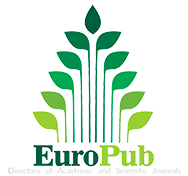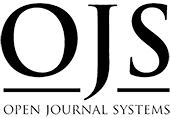Promoting teachers’ innovation by using the One-Minute Paper
Palabras clave:
Formative assessment, Active learning, Critical thinking, Higher educationResumen
Assessing learning is a critical issue in higher education. Implementation of assessment methods should promote the active engagement of students. In this line, the use of the One-Minute Paper (OMP) provides an easy and cost-effective method for gathering information about student learning. This formative assessment strategy uses brief questions to determine if students have correctly identified the most important topics from a class and to determine if they are left with any confusion concerning a particular topic. This article seeks to explore the use of the OMP model - as a formative assessment tool - by faculty members. For this purpose, a web-based questionnaire was administered to a sample of 45 teachers at a Chilean private university. Findings show that teachers use question-based assessment methods to improve students’ learning, but are not familiar with the OMP model. Therefore, ad hoc training should be implemented and future research should be conducted to explain the effectiveness of this formative assessment technique.
Citas
Agarwal, P. K. (2019). Retrieval Practice & Bloom’s Taxonomy: Do Students Need Fact Knowledge Before Higher Order Learning? Journal of Educational Psychology, 111(2), 189–209. http://dx.doi.org/10.1037/edu0000282189
Almeida, P. A. (2012). Can I ask a question? the importance of classroom questioning. Procedia – Social and Behavioral Sciences 31, 634-638. http://rediie.cl/wp-content/uploads/Can-I-ask-a-question-the-importance-of-classroom-questioning.pdf
Ashakiran, S. & Deepthi, R. (2012). One-Minute Paper: A thinking centered assessment tool. Internet Journal of Medical Update. http://rediie.cl/wp-content/uploads/93192-Article-Text-237877-1-10-20130827.pdf.pdf
Astrid, A., 1, Amrina, R. D., Desvitasari, D., U. & Shahab, A. (2019). The Power of Questioning: Teacher’s Questioning Strategies in the EFL Classrooms. IRJE/Indonesian Journal in Education, 3(1), 91-106. https://online-journal.unja.ac.id/irje/article/view/6601
Bloom, B. (1956). Taxonomy of Educational Objectives; The Classification of Educational Goals. NLongmans, Green.
Cannon, R. and Newble, D. (2000). A Handbook for Teachers in Universities and Colleges. Fourth ed. LKogan Page Limited.
Christensen, C. (2017). What is the impact of effective questioning and critical, relevant conversations on sixth grade science students’ agentic engagement? Hamline University School of Education Student Capstone Theses and Dissertations. 4307. https://digitalcommons.hamline.edu/hse_all/4307/?utm_source=digitalcommons.hamline.edu%2Fhse_all%2F4307&utm_medium=PDF&utm_campaign=PDFCoverPages
Davis, B. G., Wood, L., & Wilson, R. C. (1983). ABCs of teaching with excellence. Berkeley: University of California.
Hall, G.(2016). The Importance of Questioning. https://garyhall.org.uk/importance-of-questioning.html
Iqbal, H. M., Azam, S. & Abiodullah, M. (2008). Using Assessment for Improving Students Learning: an analysis of University Teachers’ Practices. Bulletin of Education and Research, 31(1), 47-59. http://pu.edu.pk/images/journal/ier/bulletin-pdf/3_UsingAssessmentforImprovingStudentsLearning_Vol30_o9.pdf
Long, M. , Blankenburg, R. & Butani, L. (2014). Questioning as a Teaching Tool. COMSEP. https://www.researchgate.net/publication/272083618_Questioning_as_a_Teaching_Tool#fullTextFileContent
Meehlhause, K. (2016). Two Parts Reflection, One Part Selfie: A Visual Alternative to the Minute Paper. Communications in Information Literacy 10(1), 14-22. https://digitalcommons.morris.umn.edu/cgi/viewcontent.cgi?article=1005&context=library
Peterson, D. (2017). Engaging elementary students in higher order talk and writing about text. Journal of Early Childhood Literacy, 19(1), 34–54. https://journals.sagepub.com/doi/pdf/10.1177/1468798417690918
Peterson, R. A. (2000). Constructing effective questionnaires. Thousand Oaks, CA: Sage.
Scales, P. (2018). Using questions to promote learning and understanding. https://college.jobs.ac.uk/article/using-questions-to-promote-learning-and-understanding/
Shanmugavelu, G., Ariffin, K., , Manimaran Vadivelu, M., Mahayudin, Z. & Sundaram, M. A. (2020). Questioning Techniques and Teachers’ Role in the Classroom. International Journal of Education, 8(4), 45-49. https://files.eric.ed.gov/fulltext/EJ1268029.pdf
Stead, D. (2005). A review of the one-minute paper. Active Learning in Higher Education, 6(2), 118-131. http://rediie.cl/stead_2005-pdf/
Swartz, M. (2016). Revisiting ‘‘The One-Minute Preceptor. J Pediatr Health Care, 30, 95-96. https://www.jpedhc.org/article/S0891-5245(16)00006-7/pdf
Vale, R. D. (2013). The value of asking questions. Mol Biol Cell, 24(6), 680–682. https://www.ncbi.nlm.nih.gov/pmc/articles/PMC3596240/
Vera, F. (2016). Transformación curricular. El caso de una universidad privada chilena [Curriculum transformation. The case of a Chilean private university]. Revista Iberoamericana de Educación / Revista Ibero-americana de Educação, 72(2), 23-46, Orgaización de Estados Iberoamericanos (OEI/CAEU) / Organização dos Estados Iberoamericanos (OEI/CAEU. https://www.researchgate.net/publication/323203320_Transformacion_curricular_El_caso_de_una_universidad_privada_chilena
Vera, F. (2020). Research skills in nursing undergraduate students: A case study at a Chilean private university. Open Science Journal, 5, 3-10. https://osjournal.org/ojs/index.php/OSJ/article/view/2487/300
Vera, F. (2021). Implementación de metodologías activas desde un enfoque transdisciplinar: El caso de un colegio particular subvencionado chileno. Revista Electrónica Transformar, 2(4), 20.34. https://revistatransformar.cl/index.php/transformar/article/view/41/21
Whittard, D. (2015). Reflections on the one-minute paper. Economics Working Paper Series 1502. https://core.ac.uk/reader/191951352
Zolfaghari, A. R., Fathi, D. & Hashemi, M. (2011). The Role of Creative Questioning in the Process of Learning and Teaching. Procedia - Social and Behavioral Sciences 30, 2079-2082. https://doi.org/10.1016/j.sbspro.2011.10.404








